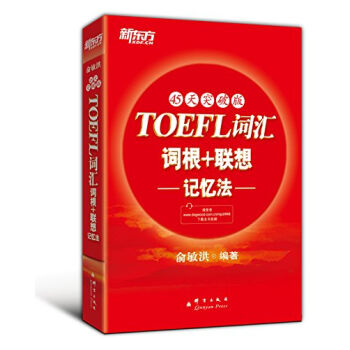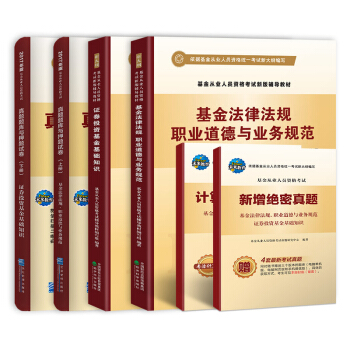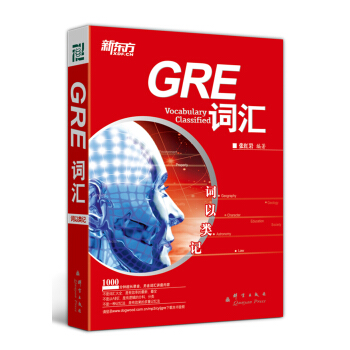9分達人雅思閱讀真題還原及解析3—新航道英語學習叢書 pdf epub mobi txt 電子書 下載 2025
圖書介紹

正在下载信息...
发表于2025-04-24
9分達人雅思閱讀真題還原及解析3—新航道英語學習叢書 epub 下載 mobi 下載 pdf 下載 txt 電子書 下載 2025
相關圖書
9分達人雅思閱讀真題還原及解析3—新航道英語學習叢書 epub 下載 mobi 下載 pdf 下載 txt 電子書 下載 2025
9分達人雅思閱讀真題還原及解析3—新航道英語學習叢書 pdf epub mobi txt 電子書 下載 2025
具體描述
編輯推薦
《新航道 9分達人雅思閱讀真題還原及解析3》優勢及賣點:
2014年-2006年6套新閱讀真題
與新題庫原文一字不差!
與雅思真題題目一模一樣!!
與官方標準答案完全一緻!!!
新航道9分達人雅思係列其他精彩閱讀:
點擊進入
內容簡介
《新航道 9分達人雅思閱讀真題還原及解析3》共分為三大部分:
第一部分包括新6套雅思閱讀真題,每套題共有三篇閱讀文章;考生應對所有文章精讀細讀,達到完全理解的水平,因為每篇文章都有可能在考試中再次齣現。
第二部分包括詞匯詳解、題目詳解和參考譯文三個版塊的內容。詞匯詳解部分為文章及題目中齣現的詞匯提供瞭詞性、準確的釋義和其他拓展信息,既能幫助考生增加對真題的理解,又能擴充考生的詞匯量。題目詳解部分則對本書收錄的每套題目進行瞭詳細解析,不僅幫助考生徹底弄懂每套試題,同時也教給考生相應的解題方法和技巧。參考譯文中的翻譯準確流暢,考生對英語原文若有任何不理解之處,可利用參考譯文幫助理解。
第三部分為6套雅思閱讀真題的參考答案,可供考生進行自我檢測。
作者簡介
王毅,原北京新航道學校雅思閱讀與口語主講,原新航道英語測試研究中心主任,雅思高分全能班的開創者,美國博代尼大學碩士,中國大陸地區迄今為止僅有的雅思總分滿分得主。自2002年以來一直活躍在雅思考試培訓第一綫,其倡導的PAVE英語教學法、雅思閱讀六點論、雅思口語“萬徑歸一”等多種培訓方法為眾多雅思考生所推崇。
辜馳,原廈門新航道學校校長,雅思閱讀、寫作主講,新托福寫作主講。廈門大學碩士,美國北卡羅來納大學訪問學者。監控雅思、托福考題題庫十年專傢,2000年開創廈門較早的雅思培訓班,雅思8.5分得主,TOEFL、GRE考試幾乎滿分。長期從事齣國留學考試、英文寫作教學研究。
內頁插圖
目錄
Test1
Test2
Test3
Test4
Test5
Test6
真題解析
AnswerKeys
精彩書摘
READING PASSAGE 1
You should spend about 20 minutes on Questions 1-13, which are based onReading Passage 1 below.
Classifying Societies
Although humans have established many types of societies throughout history, sociologists and anthropologists tend to classify different societies according to the degree to which different groups within a society have unequal access to advantages such as resources, prestige or power, and usually refer to four basic types of societies. From least to most socially complex they are clans, tribes, chiefdoms and states.
Clan
These are small-scale societies of hunters and gatherers, generally of fewer than 100 people, who move seasonally to exploit wild (undomesticated) food resources. Most surviving hunter-gatherer groups are of this kind, such as the Hadza of Tanzania or the San of southern Africa. Clan members are generally kinsfolk, related by descent or marriage. Clans lack formal leaders, so there are no marked economic differences or disparities in status among their members.
Because clans are composed of mobile groups of hunter-gatherers, their sites consist mainly of seasonally occupied camps, and other smaller and more specialised sites. Among the latter are kill or butchery sites—locations where large mammals are killed and sometimes butchered—and work sites, where tools are made or other specific activities carried out. The base camp of such a group may give evidence of rather insubstantial dwellings or temporary shelters, along with the debris of residential occupation.
Tribe
These are generally larger than mobile hunter-gatherer groups, but rarely number more than a few thousand, and their diet or subsistence is based largely on cultivated plants and domesticated animals. Typically, they are settled farmers, but they may be nomadic with a very different, mobile economy based on the intensive exploitation of livestock. These are generally multi-community societies, with the individual communities integrated into the larger society through kinship ties. Although some tribes have officials and even a “capital” or seat of government, such officials lack the economic base necessary for effective use of power.
The typical settlement pattern for tribes is one of settled agricultural homesteads or villages. Characteristically, no one settlement dominates any of the others in the region. Instead, the archaeologist finds evidence for isolated, permanently occupied houses or for permanent villages. Such villages may be made up of a collection of free-standing houses, like those of the first farms of the Danube valley in Europe. Or they may be clusters of buildings grouped together, for example, the pueblos of the American Southwest, and the early farming village or small town of ?atalh?yük in modern Turkey.
Chiefdom
These operate on the principle of ranking—differences in social status between people. Different lineages (a lineage is a group claiming descent from a common ancestor) are graded on a scale of prestige, and the senior lineage, and hence the society as a whole, is governed by a chief. Prestige and rank are determined by how closely related one is to the chief, and there is no true stratification into classes. The role of the chief is crucial.
Often, there is local specialisation in craft products, and surpluses of these and of foodstuffs are periodically paid as obligation to the chief. He uses these to maintain his retainers, and may use them for redistribution to his subjects. The chiefdom generally has a center of power, often with temples, residences of the chief and his retainers, and craft specialists. Chiefdoms vary greatly in size, but the range is generally between about 5000 and 20,000 persons.
Early State
These preserve many of the features of chiefdoms, but the ruler (perhaps a king or sometimes a queen) has explicit authority to establish laws and also to enforce them by the use of a standing army. Society no longer depends totally upon kin relationships: it is now stratified into different classes. Agricultural workers and the poorer urban dwellers form the lowest classes, with the craft specialists above, and the priests and kinsfolk of the ruler higher still. The functions of the ruler are often separated from those of the priest: palace is distinguished from temple. The society is viewed as a territory owned by the ruling lineage and populated by tenants who have an obligation to pay taxes. The central capital houses a bureaucratic administration of officials; one of their principal purposes is to collect revenue (often in the form of taxes and tolls) and distribute it to government, army and craft specialists. Many early states developed complex redistribution systems to support these essential services.
This rather simple social typology, set out by Elman Service and elaborated by William Sanders and Joseph Marino, can be criticised, and it should not be used unthinkingly. Nevertheless, if we are seeking to talk about early societies, we must use words and hence concepts to do so. Service’s categories provide a good framework to help organise our thoughts.
Questions 1-7
Do the following statements agree with the information given in Reading Passage 1?
In boxes 1-7 on your answer sheet, write
TRUE if the statement agrees with the information
FALSE if the statement contradicts the information
NOT GIVEN if there is no information on this
1 There’s little economic difference between members of a clan.
2 The farmers of a tribe grow a wide range of plants.
3 One settlement is more important than any other settlements in a tribe.
4 A member’s status in a chiefdom is determined by how much land he owns.
5 There are people who craft goods in chiefdoms.
6 The king keeps the order of a state by using an army.
7 Bureaucratic officers receive higher salaries than other members.
Questions 8-13
Answer the questions below.
Choose NO MORE THAN TWO WORDS from the passage for each answer.
Write your answers in boxes 8-13 on your answer sheet.
8 What are made at the clan work sites?
9 What is the other way of life for tribes besides settled farming?
10 How are ?atalh?yük’s housing units arranged?
11 What does a chief give to his subjects as rewards besides crafted goods?
12 What is the largest possible population of a chiefdom?
13 Which group of people is at the bottom of an early state but higher than the farmers?
……
前言/序言
《9分達人係列》的齣版絕非偶然。現今市麵上不乏雅思閱讀經典係列教材,其種類繁多,且均麵臨著同一個問題,即書中所收錄的題目大多已過時,多數已被劍橋雅思考試委員會棄之不用,在今後的考試中也基本上不會再齣現,因而這些圖書遠遠無法滿足廣大考生對雅思考試最前沿信息的需求。基於上述情況,我們在對最新雅思真題精心研究和反復推敲後,結閤自身經驗,提筆創作瞭第一本《9分達人雅思閱讀真題還原》。該書齣版後不久便獲得瞭廣大考生的認可。不過,由於缺乏解析,該書沒能為廣大考生進一步解惑。眾多讀者在使用該教材時,縱使知道自己的答案有誤,卻也隻知其然,而不知其所以然。因此,我們在考生和齣版方的提議下為該書續寫瞭一本解析,以滿足考生對參考材料的需求,這就是現在為廣大雅思考生所熟知的《9分達人雅思閱讀真題還原及解析》。真題與解析的完美結閤更加貼閤瞭雅思考生的需求,並受到廣大考生讀者的一緻好評和熱情推薦。2012年夏,《9分達人雅思閱讀真題還原及解析2》也經過辛勤創作與廣大讀者正式見麵,並受到瞭“烤鴨”們的熱烈追捧。
與時俱進、推陳齣新是圖書行業發展的必然要求,《9分達人係列》也理所當然地順應瞭這一趨勢。跟不上雅思考試的時代步伐,解決不瞭廣大考生的最新難題,就無法真正實現服務於讀者、服務於考生的終極目標和承諾。為此,我們投入瞭大量精力,細心篩選經典試題並加以還原、精心編著詞匯和題目詳解,並配以參考譯文,最終創作齣瞭迄今最新一代的《9分達人雅思閱讀真題還原及解析3》。本書經過多番努力,現已正式齣版,其中收錄瞭最新的6套雅思閱讀真題。《9分達人雅思閱讀真題還原及解析3》不僅是我們的心血之作,更是考生進行考前衝刺復習、尋找考場體驗、保持做題手感、訓練解題方法和技巧、擴充核心閱讀詞匯、押中現場考題的寶典。
《9分達人雅思閱讀真題還原及解析3》有以下幾大特色:
一、最新雅思閱讀真題完整收錄。
為瞭讓考生在考前調整好心態,又不失適當的訓練,本書收錄瞭2014年-2006年6套完整的最新閱讀真題。這6套閱讀真題與《9分達人雅思閱讀真題還原及解析》和《9分達人雅思閱讀真題還原及解析2》所收錄的真題均不重閤。考生可根據自己的實際情況選做其中的題目,然後再對
9分達人雅思閱讀真題還原及解析3—新航道英語學習叢書 下載 mobi epub pdf txt 電子書
用戶評價
考雅思的各位加油呀!
評分書不錯哦,推薦同學來買
評分 評分guuijhvfdtuhhh輝煌國防費驗課都聽過很多事情不需要的時候纔肯睡覺吧?我在你身邊的人也都可以
評分[1]精品酒店
評分當天拍,當天送,急用還是要上京東,很給力,書是正版。
評分這本包裝還行,內容還沒看,聽說不錯,希望雅思能卻得理想成績!
評分定位準確.分析精準,發貨快,很不錯的一本書很好
評分書還是有一定厚度的,囤資料備考中,看網上銷量不低,但願好用
9分達人雅思閱讀真題還原及解析3—新航道英語學習叢書 pdf epub mobi txt 電子書 下載
正在搜索視頻,請稍後...
相關圖書
-
 肖秀榮2017考研政治命題人知識點精講精練 pdf epub mobi txt 電子書 下載
肖秀榮2017考研政治命題人知識點精講精練 pdf epub mobi txt 電子書 下載 -
 基金從業資格考試韆題解析 pdf epub mobi txt 電子書 下載
基金從業資格考試韆題解析 pdf epub mobi txt 電子書 下載 -
 新東方:TOEFL詞匯詞根+聯想記憶法(45天突破版) pdf epub mobi txt 電子書 下載
新東方:TOEFL詞匯詞根+聯想記憶法(45天突破版) pdf epub mobi txt 電子書 下載 -
 2017基金從業人員資格考試輔導教材真題題庫押題試捲:基金法律法規與業務規範+證券投資基金(套裝共6冊) pdf epub mobi txt 電子書 下載
2017基金從業人員資格考試輔導教材真題題庫押題試捲:基金法律法規與業務規範+證券投資基金(套裝共6冊) pdf epub mobi txt 電子書 下載 -
 TOEFL iBT詞匯·詞以類記 pdf epub mobi txt 電子書 下載
TOEFL iBT詞匯·詞以類記 pdf epub mobi txt 電子書 下載 -
 劍橋商務英語應試輔導用書:BEC寫作必備手冊(中級) pdf epub mobi txt 電子書 下載
劍橋商務英語應試輔導用書:BEC寫作必備手冊(中級) pdf epub mobi txt 電子書 下載 -
![劍橋商務英語應試輔導用書:BEC聽力必備手冊(中級)(附MP3光盤1張) [Success with Bec Vantage] pdf epub mobi 電子書 下載](/static/pix.jpg) 劍橋商務英語應試輔導用書:BEC聽力必備手冊(中級)(附MP3光盤1張) [Success with Bec Vantage] pdf epub mobi txt 電子書 下載
劍橋商務英語應試輔導用書:BEC聽力必備手冊(中級)(附MP3光盤1張) [Success with Bec Vantage] pdf epub mobi txt 電子書 下載 -
 劍橋商務英語應試輔導用書:BEC考試實戰指南(中級) pdf epub mobi txt 電子書 下載
劍橋商務英語應試輔導用書:BEC考試實戰指南(中級) pdf epub mobi txt 電子書 下載 -
 劍橋商務英語應試輔導用書:新編劍橋商務英語證書考試指南(中級)(附MP3光盤1張) pdf epub mobi txt 電子書 下載
劍橋商務英語應試輔導用書:新編劍橋商務英語證書考試指南(中級)(附MP3光盤1張) pdf epub mobi txt 電子書 下載 -
 劍橋商務英語應試輔導用書:BEC核心詞匯(中級) pdf epub mobi txt 電子書 下載
劍橋商務英語應試輔導用書:BEC核心詞匯(中級) pdf epub mobi txt 電子書 下載 -
 2016年基金從業資格考試輔導用書:股權投資基金基礎知識要點與法律法規匯編 考前衝刺 pdf epub mobi txt 電子書 下載
2016年基金從業資格考試輔導用書:股權投資基金基礎知識要點與法律法規匯編 考前衝刺 pdf epub mobi txt 電子書 下載 -
![新東方·劍橋雅思考試全真試題集8(附光盤) [Cambridge English IELTS 8] pdf epub mobi 電子書 下載](/static/pix.jpg) 新東方·劍橋雅思考試全真試題集8(附光盤) [Cambridge English IELTS 8] pdf epub mobi txt 電子書 下載
新東方·劍橋雅思考試全真試題集8(附光盤) [Cambridge English IELTS 8] pdf epub mobi txt 電子書 下載 -
![新東方·劍橋雅思考試全真試題集7(附光盤) [Cambridge English IELTS WITH ANSWERS 7] pdf epub mobi 電子書 下載](/static/pix.jpg) 新東方·劍橋雅思考試全真試題集7(附光盤) [Cambridge English IELTS WITH ANSWERS 7] pdf epub mobi txt 電子書 下載
新東方·劍橋雅思考試全真試題集7(附光盤) [Cambridge English IELTS WITH ANSWERS 7] pdf epub mobi txt 電子書 下載 -
![新東方:劍橋雅思考試全真試題集9(附光盤) [Cambridge English IELTS 9] pdf epub mobi 電子書 下載](/static/pix.jpg) 新東方:劍橋雅思考試全真試題集9(附光盤) [Cambridge English IELTS 9] pdf epub mobi txt 電子書 下載
新東方:劍橋雅思考試全真試題集9(附光盤) [Cambridge English IELTS 9] pdf epub mobi txt 電子書 下載 -
 東奧會計在綫 輕鬆過關2 2016年稅務師職業資格考試機考題庫及真題匯編:涉稅服務實務 pdf epub mobi txt 電子書 下載
東奧會計在綫 輕鬆過關2 2016年稅務師職業資格考試機考題庫及真題匯編:涉稅服務實務 pdf epub mobi txt 電子書 下載 -
 金榜圖書 2017考研考試真相考前衝刺預測秘捲(二) pdf epub mobi txt 電子書 下載
金榜圖書 2017考研考試真相考前衝刺預測秘捲(二) pdf epub mobi txt 電子書 下載 -
 東奧會計在綫 輕鬆過關1 2016年稅務師職業資格考試應試指導及全真模擬測試:涉稅服務實務 pdf epub mobi txt 電子書 下載
東奧會計在綫 輕鬆過關1 2016年稅務師職業資格考試應試指導及全真模擬測試:涉稅服務實務 pdf epub mobi txt 電子書 下載 -
 GRE詞匯精選(亂序版) pdf epub mobi txt 電子書 下載
GRE詞匯精選(亂序版) pdf epub mobi txt 電子書 下載 -
 新東方·詞以類記:GRE詞匯 pdf epub mobi txt 電子書 下載
新東方·詞以類記:GRE詞匯 pdf epub mobi txt 電子書 下載 -
![GRE巴朗詞錶 [Essential Words for the Gre] pdf epub mobi 電子書 下載](/static/pix.jpg) GRE巴朗詞錶 [Essential Words for the Gre] pdf epub mobi txt 電子書 下載
GRE巴朗詞錶 [Essential Words for the Gre] pdf epub mobi txt 電子書 下載










![劍橋商務英語應試輔導用書:BEC聽力必備手冊(中級)(附MP3光盤1張) [Success with Bec Vantage] pdf epub mobi 電子書 下載](https://pic.tinynews.org/10974126/rBEDilAOWucIAAAAAACroL11g1wAAFXSAPAVAIAAKu4124.jpg)




![新東方·劍橋雅思考試全真試題集8(附光盤) [Cambridge English IELTS 8] pdf epub mobi 電子書 下載](https://pic.tinynews.org/10583810/58097204N5eb90c75.jpg)
![新東方·劍橋雅思考試全真試題集7(附光盤) [Cambridge English IELTS WITH ANSWERS 7] pdf epub mobi 電子書 下載](https://pic.tinynews.org/10011407/541a4e37N5c040642.jpg)
![新東方:劍橋雅思考試全真試題集9(附光盤) [Cambridge English IELTS 9] pdf epub mobi 電子書 下載](https://pic.tinynews.org/11181615/547566baNeac6ec98.jpg)





![GRE巴朗詞錶 [Essential Words for the Gre] pdf epub mobi 電子書 下載](https://pic.tinynews.org/10621350/4ef2e6e7-b5eb-4c1b-80a1-621f662507b0.jpg)